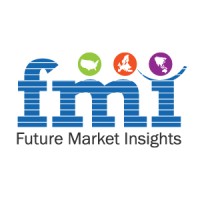The global market for food authenticity testing services is predicted to reach US$ 10112.8 million by 2033, surpassing US$ 5893 million in 2023.
According to the report, access to pure and adulterant-free meals has been jeopardised in recent years. Both health-conscious customers and healthcare practitioners have been incensed by the prevalence of food adulteration, mislabeling, and hidden ingredient data.
Morbidities caused by the usage of substandard and contaminated products affect 57% of the world’s population on average. Furthermore, each year, roughly a fifth of the world’s food supply is polluted. Recognising this, governments have taken aggressive steps to mitigate the detrimental effects of food adulteration.
Tap into Market Opportunities and Stay Ahead of Competitors – Get Your Sample Report Now!
https://www.futuremarketinsights.com/reports/sample/rep-gb-12630
Increasing consciousness among consumers has elevated the need for introducing clean-label, organic-based and naturally derived foods. Based on these developments, the global Food Authenticity Testing Services market is all set to experience an impressive upsurge in the coming years.
Key Takeaways from FMI’s Food Authenticity Testing Services Market Report
- Global Food Authenticity Testing Services market is likely to expand at a noteworthy CAGR in the forthcoming decade
- Asia-Pacific to emerge as the fastest expanding region for Food Authenticity Testing Services attributed to a large population base
- High incidence of meat consumption to provide traction to meat speciation authenticity tests
- Economically Motivated Adulterations (EMA) compelling governments to impose tough legislations to keep food adulteration in check
- PCR-based tests are expected to retain their popularity due to quick delivery of test results
- Processed foods testing is expected to acquire surging popularity due to high demand
COVID-19 Impact Insights
The COVID-19 pandemic presents an exceptional and unprecedented challenge for competent authorities with responsibilities for national food safety control systems. As consumers resort to consuming health and immunity boosting foods, demand for clean-label products is rising exponentially.
While nationwide lockdowns and social distancing measures have limited laboratory testing capacities, it has not fully ceased as chances of food adulteration are maximum during this time period. Unscrupulous traders are prowling the market with the objective of flooding it with adulterated food products.
Thus, leading players have revised growth forecasts to demonstrate that the market is expected to remain afloat albeit at lower projections and reduced revenue margins. Growth is expected to be restored to normal levels in the post-pandemic scenario, once lockdowns are eased following a decline in infection rates.
Leading Food Authenticity Testing Services Market Players
Some leading players in the global Food Authenticity Testing Services market include ALS Ltd., EMSL Analytical Inc, Genetic ID NA Inc., Eurofins Scientific SE, Merieux NutriSciences Corporation, Intertek Group PLC, Microbac Laboratories Inc., SGS SA and Romer Labs to name a few.
The aforementioned players employ a combination of tactics such as product launches, technological advancements, strategic acquisitions and expansion of research facilities in untapped markets.
ALS Ltd., for instance, offers a wide range of testing and analysis with respect to ascertaining food quality. Its Food Authenticity Testing Services tests incorporate meat speciation through the ELISA/PCR testing techniques, halal verification and genetically modified foods. It also offers testing for detecting contaminants and allergens.
In May 2016, Intertek established its AgriTech laboratory in Hyderabad, India to perform DNA-based testing of various agricultural products. Simultaneously, the company unveiled its advanced ScanBi DNA technology.
Key Segments
Food Tested
- Meat & Meat Products
- Dairy & Dairy Products
- Processed Foods
- Other Food Tested
Target Testing
- Meat Speciation
- Country of Origin & Ageing
- Adulteration
- False Labelling
Technology
- PCR-Based
- Liquid Chromatography-Mass Spectrometry (LC-MS)
- Isotope
- Immunoassay Based/ELISA
- Other Technologies
Region
- North America (U.S & Canada)
- Latin America (Brazil, Mexico & Rest of Latin America)
- Europe (Germany, Italy, France, U.K, Spain, BENELUX & Rest of Europe)
- South Asia (India, ASEAN & Rest of South Asia)
- East Asia (China, Japan & South Korea)
- Middle East & Africa (GCC, South Africa, Israel & Rest of MEA)
- Oceania (Australia & New Zealand)
Key Questions Answered in the Report
- What are the growth prospects of Food Authenticity Testing Services market?
The global Food Authenticity Testing Services market is slated to record largely positive growth, experiencing a healthy CAGR throughout 2020-2030. Growth is primarily being underpinned by surging demand for clean-label and adulterant free foods across lucrative markets.
- Which is the largest market for Food Authenticity Testing Services players?
Asia-Pacific is slated to emerge as the most lucrative revenue generator, attributed to a large population base. Majority of food testing demand is likely to be stimulated from China and India, the world’s most densely populated countries. This is because the prevalence of food adulteration is maximum across these countries.
- Who are the leading Food Authenticity Testing Services market players?
Presently, the global Food Authenticity Testing Services market is interspersed with the presence of the following market players: EMSL Analytical Inc, Genetic ID NA Inc., Eurofins Scientific SE, Merieux NutriSciences Corporation, Intertek Group PLC, Microbac Laboratories Inc., SGS SA and Romer Labs. The aforementioned players employ a combination of tactics such as product launches, technological advancements, strategic acquisitions and expansion of research facilities in untapped markets.





